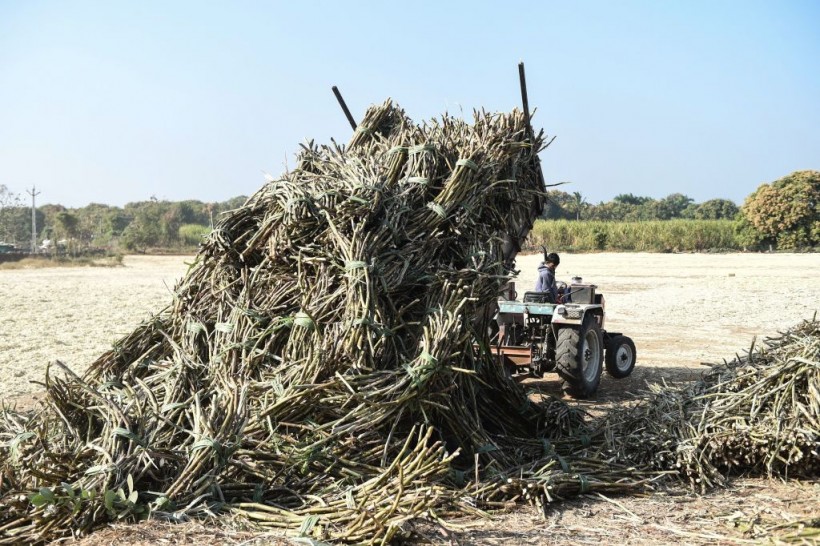Due to a decrease in cane yields caused by a lack of rain, the Indian government is reportedly planning to stop sugar mills from exporting sugar starting in October. This also means the nation is suspending sugar exports for the first time in seven years.
Anticipated Restriction on Sugar Exports

This picture taken on January 6, 2021, shows a tractor unloading sugarcanes used for making jaggery at a workshop near Sirvan village, some 380 km from Ahmedabad.
The loss of India's participation in global trade might boost already high benchmark prices in New York and London, sparking concerns about rising food costs throughout the globe.
A government source, who requested anonymity in accordance with established protocol, told Reuters, "Our primary focus is to fulfill local sugar requirements and produce ethanol from surplus sugarcane. For the upcoming season, we will not have enough sugar to allocate for export quotas."
In contrast to the record 11.1 million tons of sugar that were exported during the previous season through September 30, India only authorized mills to export 6.1 million tons of sugar this time.
Notably, India put a 20% tariff on sugar exports in 2016 to try to reduce sales in other countries.
Also Read: India Restricts Non-Basmati Rice Exports to Keep Prices Down
Sugar Yield Might Be Lower Than Projected
This year's monsoon rains have been as much as 50% below normal in the prime cane-producing areas of the western state of Maharashtra and the southern state of Karnataka, which together account for more than half of India's total sugar production.
An unnamed industry executive predicted that the 2023-2024 sugar harvest would be lower than expected because of inconsistent rainfall and that planting efforts for the following year would be scaled down as a result.
The government has authorized the sale of an additional 200,000 tonnes of sugar by local mills in the month of August due to the recent spike in local sugar prices to their highest level in almost two years.
The rising cost of food is a major worry. Another government source has claimed that the recent hike in sugar prices has made exporting impossible.
Food inflation in India reached 11.5% in July, the highest level in over three years, while retail inflation hit 7.44%, the highest level in 15 months.
Reportedly, the 2023-2024 season might see a 3.3% drop in India's sugar output, at 31.7 million tonnes.
According to the third government source, "We've allowed mills to export large volumes of sugar during the past two years. But we also have to ensure sufficient supplies and stable prices."
A prohibition on shipments of white rice that is not basmati originated in India came as a surprise to international consumers last month. In an effort to reduce food inflation before the upcoming state elections, New Delhi increased the export tariff on onions by 40% last week.
Also Read: India's PC Restrictions Opposed by Apple, Other US Tech Firms; Protest Letter Explains Why








